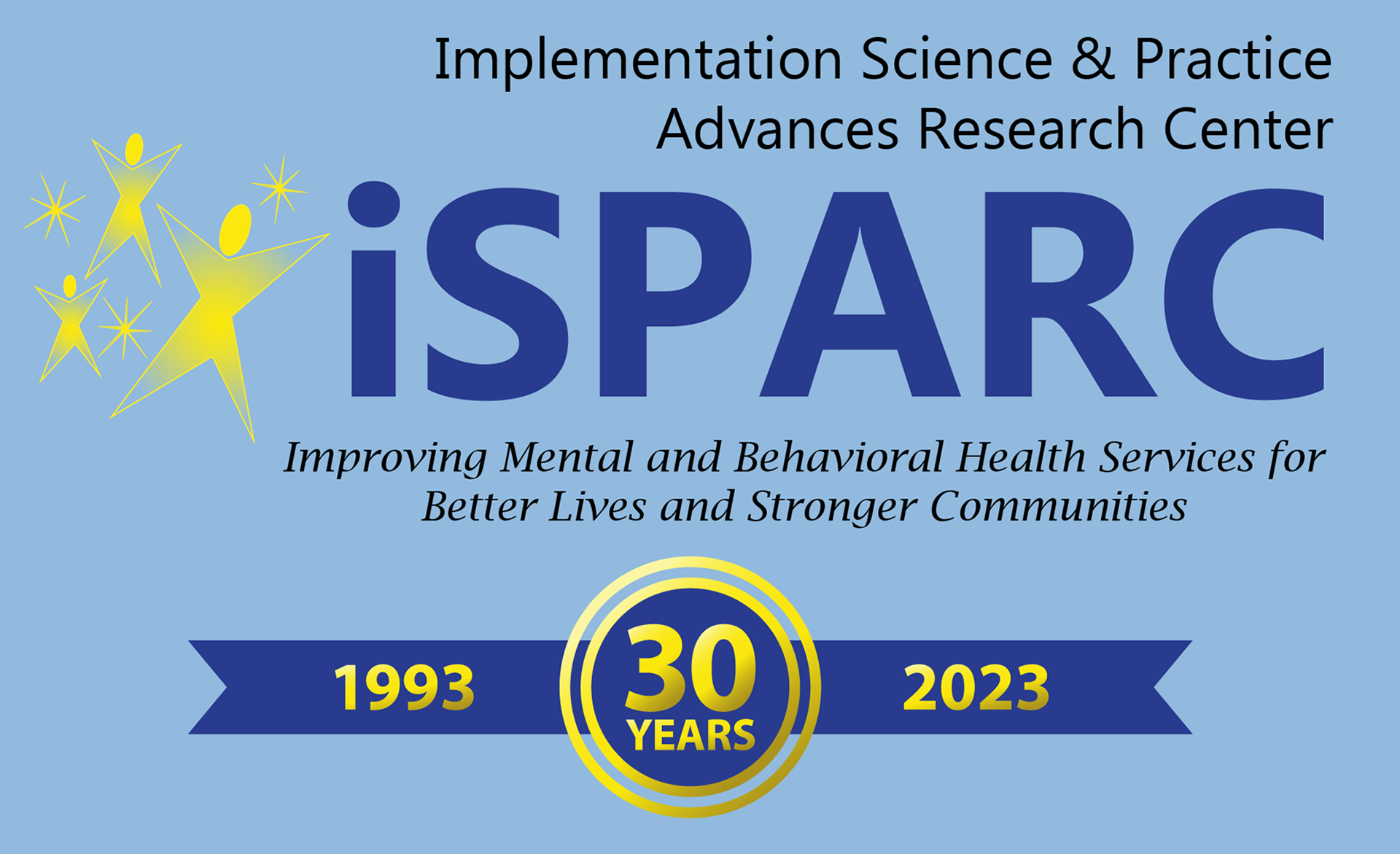Tell us a little about yourself (professionally & personally). What led you to become the center director?
At Work….
I'm a licensed clinical psychologist by trade. My passion is to help people with mental health conditions to live their best lives, including addressing their community reintegration needs and getting them back up to optimal functioning.
I started in the field of mental health as a graduate student at the University of Albany, State University of New York, where I studied the pathogenesis of anxiety-related conditions. During graduate school, I became really passionate about doing clinical work in the area of Acceptance and Commitment Therapy. I completed a postdoctoral research fellowship at the Alpert Medical School of Brown University, where I focused on helping people who had experienced trauma in their lives and continued researching the pathogenesis of anxiety and depression. Following my postdoctoral research fellowship, I worked on clinical trials for body dysmorphic disorder as an Assistant Professor at the Alpert Medical School of Brown University, and I fell in love with treatment research.
In 2009, I moved to the VA Bedford Healthcare System, where I ran a tobacco cessation clinic for many years. I really enjoyed running that clinic and helping Veterans to quit smoking. I created an organizational change model for increasing access to tobacco cessation services in the VA, which we have had the chance to disseminate across the Veterans Health Administration. While I was a clinic director, I also completed a VA career development award in the area of tobacco cessation research and then built a research program focused on the development of Acceptance and Commitment Therapy-based tobacco cessation approaches for Veterans with mental health conditions.
At the VA, I also moved into the area of community reintegration research, because that is a lot of what Acceptance and Commitment Therapy is about - values-based living. My research in this area is focused on helping Veterans to improve their social support and community connections. Community reintegration research has been rewarding work - seeing Veterans with PTSD to improve their relationships with family, friends, and others, and to increase their involvement in the community.
In 2012, I joined the VISN 1 New England Mental Illness Research, Education, and Clinical Center as a research psychologist and in 2015, I took over the administration of the Bedford Site and became the Co-Director of the overall VISN 1 MIRECC. I led a wonderful team that is focused on addictions and mental health research.
Doing work as a clinician is very much valued and important to me, and I enjoy it immensely. As an administrator in both clinical and research settings, I realized how many more lives that I could save or improve if I was trying to change policy and help systems and organizations to better help others. So, I really became a fan of trying to change policy in an organization. As a leader, I strive to be a servant leader where you're trying to help other people – and I saw that if I could further others’ goals too, I could make a lot more positive change happen.
That’s when I decided to direct a research program at the VA. I really enjoyed cultivating the work of wonderful people doing research in so many various areas. Seeing others grow in their work and supporting them in that process gave so much meaning to my work at the VA. It is wonderful and so exciting to come here to iSPARC and do the same thing. I really want to support the wonderful staff and make changes in the nation and in the world, particularly with regard to mental health and community participation.
At Home….
I am a mom of 2 wonderful kids, and I really enjoy traveling when I get the chance. I love getting to any national park that I can and as many wonderful cities as I can see.
What is one fun fact about you that somebody might not know?
I'm a huge fan of Ted Lasso! I love Ted's approach to working with people - just inspiring them and helping them to accomplish what they want to accomplish. I can't say anything about the TV show, because it'll give the plot away. But I just really identify with the show, and I just love the humor! I highly recommend watching it.
What did you want to be when you grew up?
Oh, that is such a good question! I always saw myself, even when I was in high school, going into academia. I wanted to be a teacher. I wanted to always help people, and to teach and to guide and be of support. It's always been very meaningful to me.
But if I had to do something just, you know, for myself, I probably would become an interior decorator. I always thought that would be a great path to go down. I love art, I love aesthetics. I spend a lot of time in art museums, and I just enjoy putting beautiful things together.
What's your long-term vision for iSPARC? What is your wish/hope for this center three years from now?
There are a lot of unknowns right now for me in terms of what that 3-year outlook will look like, because I'm just jumping into it. I see the first few months as getting to know everyone and trying to figure out what everyone's styles and needs are. What are everyone's goals? How can I best support everyone to complete their goals? Where do they want to be and what do they want to learn? I want to learn about the processes and to be a support (for them), and then cultivate a direction for iSPARC in coordination with everyone else in our center.
iSPARC is doing fantastic. So, first, I want us to continue to do the wonderful work that everyone is doing in different areas. I see us growing too - right now there are a number of new faculty that are joining us that are in working in exciting areas of research like suicide prevention, family relationships, and community engagement, in addition to the wonderful work of the investigators that are already here. So, I see us continuing to grow from where we are into diverse areas, all focused on improving the mental health and psychosocial rehabilitation of people with mental health conditions.
That’s broadly what I see us doing. In 3 years, hopefully, we'll be a little larger than we are now, but all of us on the same page about where we want to go.
What’s your personal research passion? What brought you to mental health research?
I chose to go into mental health research because of family members that mean a lot to me who had to live (and continue to live) with mental health conditions and being inspired to help them. Thankfully, I was able to support them with the knowledge that I received when I entered the mental health field. I was able to pass on some recommendations and let them figure out what to do for themselves and what path to go down. In my case, a person I love very much benefitted from those recommendations and her life has very much improved, which I am grateful for. I have seen firsthand what good mental health care can do for someone I love. I want to help others to have the same experience and to help develop needed treatments where there aren’t any. My initial mission for getting into mental health was to really help people like the people I love.
What do you think we could be doing better in mental health research?
What we could be doing better is what iSPARC does so well. But generally, I think we need to do a better job of focusing on life functioning and quality of life as outcomes for improving people's lives rather than just looking at mental health symptoms. People can live wonderful, rich lives and still experience mental health symptoms - even severe mental health symptoms. I think growth and good mental health are about living your optimal life. Overall, I think what we can do is to support interventions and to support ways in our healthcare systems to improve the quality of life for people with mental health conditions.
Is there anything else you’d like to share?
I just want to say how incredible iSPARC has been as a community. How warm everyone has been! How grateful I am for that! How impressed I am by the work that everyone is doing in every role throughout the organization. I'm just impressed by the integration of voices from people with lived experience, their families, and the community in the work that iSPARC does. So, I'm really excited to be part of this team and be part of that effort. I just want to stress how amazing that is.
I'm so grateful to Maryann Davis and Melissa Anderson for being there and helping me learn the ropes too. I am grateful that Maryann is not disappearing and that she’ll still be around to be a support. I’m super excited for Maryann on her whole new chapter of retirement.
It’s so exciting to see where the next phase of iSPARC goes!
 On July 1, 2023, long-time UMass Chan Medical School Dept. of Psychiatry faculty member Megan Kelly, Ph.D. became the new center director as Maryann Davis, Ph.D. transitioned to emeritus status.
On July 1, 2023, long-time UMass Chan Medical School Dept. of Psychiatry faculty member Megan Kelly, Ph.D. became the new center director as Maryann Davis, Ph.D. transitioned to emeritus status. 